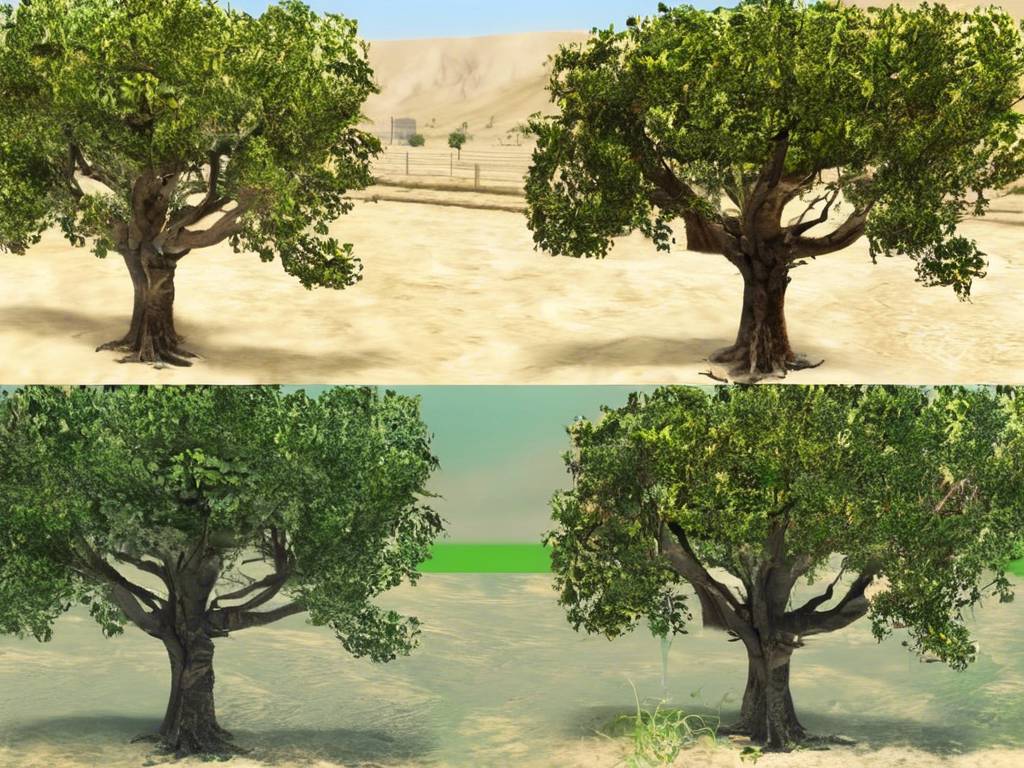Struggling Iraqi Farmers Adapt to Water Crisis
Iraqi farmers are facing a serious water crisis that is affecting their livelihoods on palm tree farms across the country. Decades of conflict, a shortage of irrigation resources, and declining levels of rainfall have led to devastating consequences for these farmers. Despite these challenges, many farmers are finding innovative ways to adapt to the changing climate and sustain their businesses.
Adapting to Drought Conditions
– Ismael Ibrahim, a farmer from southeastern Iraq, used to grow date palms but has switched to planting Sidr or jujube trees due to the scarcity of resources and water.
– Unlike date palms, jujube trees require significantly less water and can thrive on salty groundwater, making them a more sustainable option for farmers.
– Jujube trees start bearing fruit from the second year of planting, providing a quicker return on investment compared to date palms that take at least five years to bear fruit.
– Iraq is part of the Fertile Crescent, known for its arable land that has been farmed for thousands of years, but environmental factors have taken a toll on agriculture in the region.
Challenges Faced by Farmers
– Upstream damming of the Tigris and Euphrates rivers has disrupted the natural flow of water, impacting irrigation systems and agricultural practices.
– Lower levels of rainfall, exacerbated by climate change, have further added to the water shortage problem faced by Iraqi farmers.
– Decades of armed conflict, including invasions, violence, and the rise of militant groups like ISIS, have destabilized the country and its economy, making it difficult for farmers to sustain their businesses.
Impact on Palm Tree Farms
– Abbas Ali, another farmer, has seen a decline in his palm tree farm as a result of the high salt content in the water, which has contaminated the soil.
– The presence of salt in the soil affects the productivity, shape, and quality of the palm trees, ultimately impacting the quantity and quality of the fruit produced.
– Removing salt from the soil is a labor-intensive process that takes time, further exacerbating the challenges faced by farmers in Iraq.
Hot Take: Resilience and Innovation in the Face of Adversity
Despite the ongoing water crisis and environmental challenges, Iraqi farmers are demonstrating resilience and innovation by adapting their agricultural practices to sustain their livelihoods. By transitioning to crops like jujube trees that require less water and can tolerate salty groundwater, these farmers are finding ways to overcome the obstacles posed by climate change and conflict. Through their determination and ingenuity, Iraqi farmers are not only preserving their businesses but also ensuring the future viability of agriculture in the region.





 By
By
 By
By
 By
By


 By
By